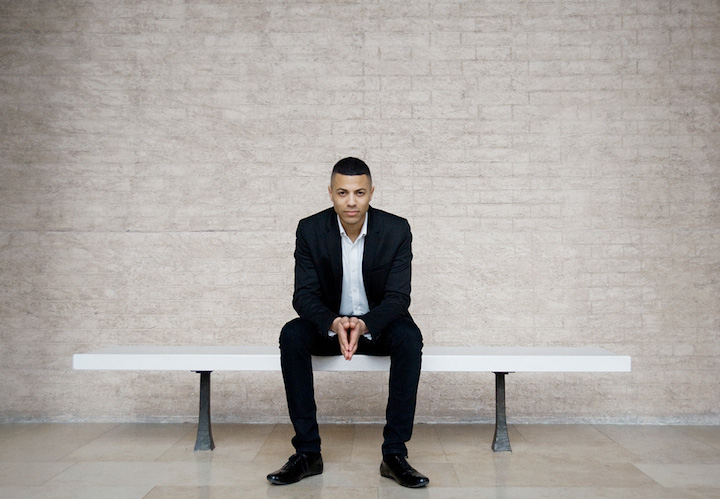Sunday night’s Esprit Orchestra at Koerner Hall is entitled Strange Matter, but it could also have been called News From Europe. The there-and-now programme includes the premiere of a new work by ex-Montrealer Samy Moussa, now happily plying (and growing) his craft in Berlin.
- Classical Music 101: What Does A Conductor Do? - June 17, 2019
- Classical Music 101 | What Does Period Instrument Mean? - May 6, 2019
- CLASSICAL MUSIC 101 | What Does It Mean To Be In Tune? - April 23, 2019
Moussa, who did his undergraduate composition studies at the Université de Montréal, was a bit of a teen sensation, earning a commission from the Montreal Symphony Orchestra by age 19.
Now, on the verge of his 30th birthday, Moussa says he would happily revisit his past.
“I would like to revise everything,” he laughs, admitting that, for him, composing is, “all about doing better next time.”
But Moussa knows that being a chronic reviser is counterproductive. “When you revise things too much, you also destroy things. With distance, you sometimes lose the initial impulse you had with a piece.”
The question of distance is important, here, because Moussa is conducting the world premiere of a new work for Esprit on Sunday night.
Conducting is something the composer is doing more and more. He is the music director of a new music ensemble in Munich, where he completed his graduate work, and has been taking on guest-conducting gigs with increasing frequency. But that doesn’t necessarily mean he always wants to conduct his own music.
“I did it very little until recently,” says Moussa.
One reason is that another conductor brings another set of eyes and sensibilities, which may see different things in the music. Moussa used to worry that if he were the conductor, he would be reading his music instead of interpreting it. “But now, even when I’ve composed something today, I’m more confident that I can bring something new [as a conductor],” he states.
Another reason why Moussa preferred handing the baton to someone else was a need to connect with as many musicians and conductors as possible. “When you conduct yourself, you end up being completely isolated, in a way,” he says. That’s not good for an ambitious composer.
This sort of solid practicality pervades much of Moussa’s work. He prefers big orchestra halls and opera houses to small new music gatherings, because it puts him in better touch with a wider audience. And he writes with an ear to what may connect.
This penchant for the accessible is one of the reasons he was chosen to write the inaugural work for the new pipe organ at Montreal’s Maison symphonique, which gets a splashy public premiere at the end of May.
Moussa’s new work for Esprit Orchestra, part of a five-composition programme on Sunday, is 12 minutes long. It is written in a straightforward A-B-A-B format, with the first section taking up a bit more than 4 minutes of playing time.
Once we are fully familiar with the material, Moussa brings it back later, each time with small changes. It’s a way of preparing us for the familiar. Or, as Moussa puts it, “the proportions make it easy to digest, because elements are coming back in a different way. The ear recognizes things.”
In this sense, Moussa’s approach mirrors the practical bent of so many younger composers these days: a desire to be bold tempered with the knowledge that audiences need to grasp something familiar in the process.
The same should hold true for the rest of the programme, which includes a visit by Gabriel Prokofiev, the darling of new music hipsters in Great Britain — and the guest of honour at this year’s University of Toronto new music festival.
You’ll find all the details here.
John Terauds
- Classical Music 101: What Does A Conductor Do? - June 17, 2019
- Classical Music 101 | What Does Period Instrument Mean? - May 6, 2019
- CLASSICAL MUSIC 101 | What Does It Mean To Be In Tune? - April 23, 2019




